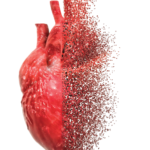NEW YORK (Reuters Health)—Rheumatoid arthritis (RA) is associated with more-severe acute coronary syndrome and poorer outcomes, according to a new study.
“We found that despite the well-researched increased risk of acute coronary events (ACS) in RA, that there was almost no existing data describing clinical characteristics and outcomes of RA- and non-RA patients with ACS,” Dr. Angla Mantel of Karolinska University Hospital in Stockholm, Sweden, told Reuters Health by email.
Using national registers, Dr. Mantel and colleagues found that 1,135 RA patients (0.9%) and 3,184 matched controls from the general population (0.5%) had incident ACS between 2007 and 2010.
In the patient cohort, stable angina, thromboembolic disease, chronic heart failure and COPD were more prevalent than in the general population, the researchers report in the European Heart Journal, online Sept. 24.
Both groups presented with chest pain about 80% of the time. However, patients with RA demonstrated ST elevations on ECG slightly more often (35.3% vs. 30.5%), had higher troponin levels and more often presented with sudden cardiac death.
RA patients with ST-elevation myocardial infarction (STEMI) received reperfusion therapies such as coronary artery bypass, acute coronary angiography, percutaneous coronary intervention (PCI) or thrombolysis more often the general population group (74.1% vs. 66.2%).
The first week after an ACS event, significantly more RA patients died compared to the controls (10.4% versus 6.7%; adjusted hazard ratio, 1.44).
After 30 days, 15.7% of the RA patients had died versus 10.7% of the controls (adjusted HR, 1.36). In both groups, most of the deaths were attributed to a cardiac cause.
“We hope that our results will lead to a widespread clinical awareness of this group of patients when assessing and (identifying) high-risk ACS patients,” Dr. Mantel said. “We have focused on the clinical importance in this study, but it is also intriguing that our results indicate that the aetiopathology of ACS in RA patients differs from non-RA patients.”

